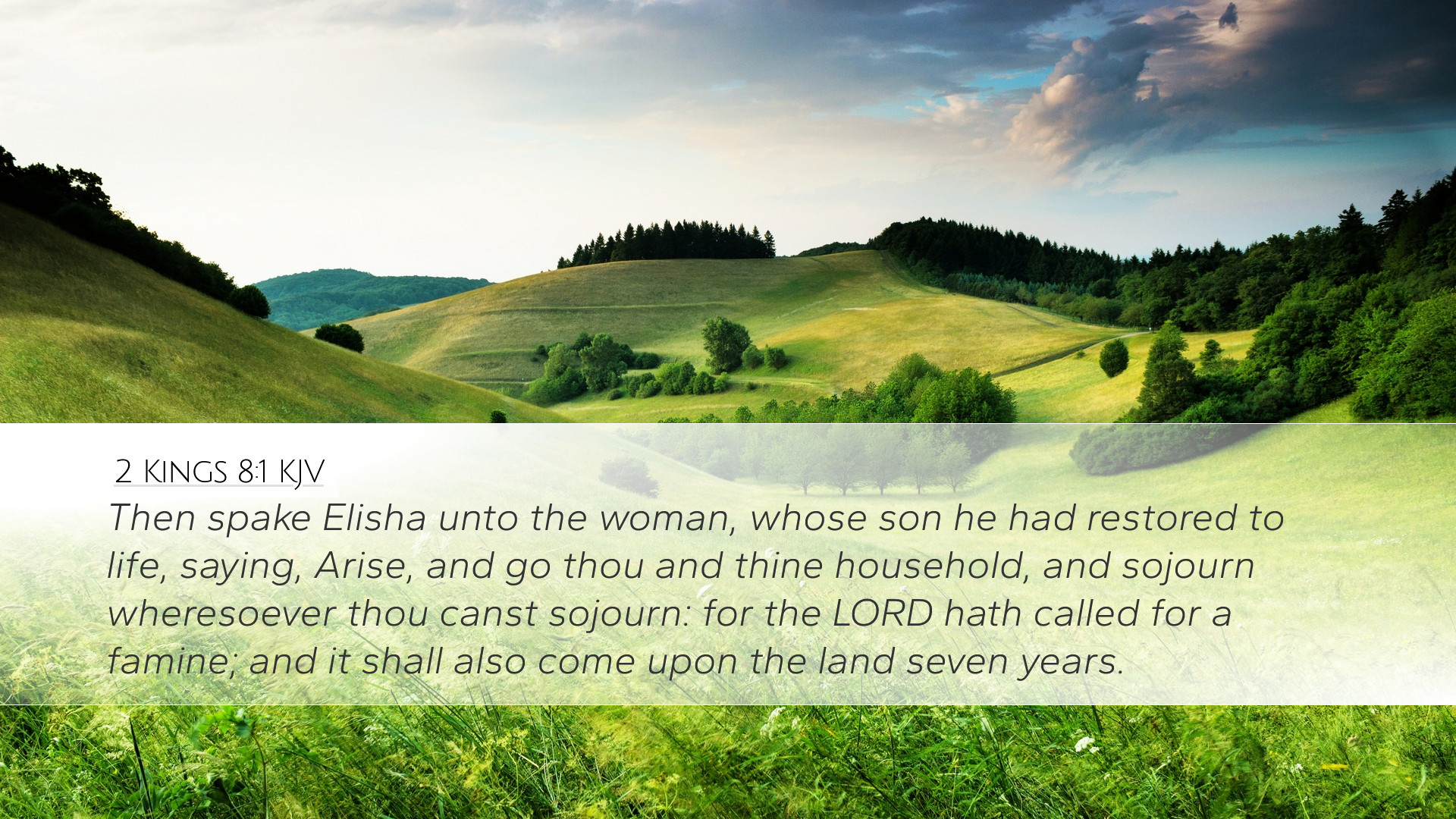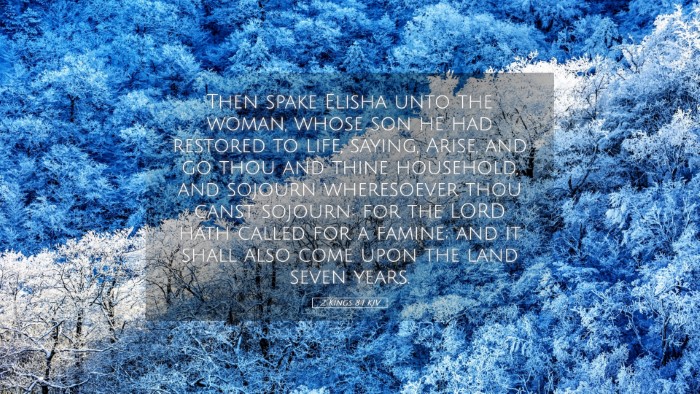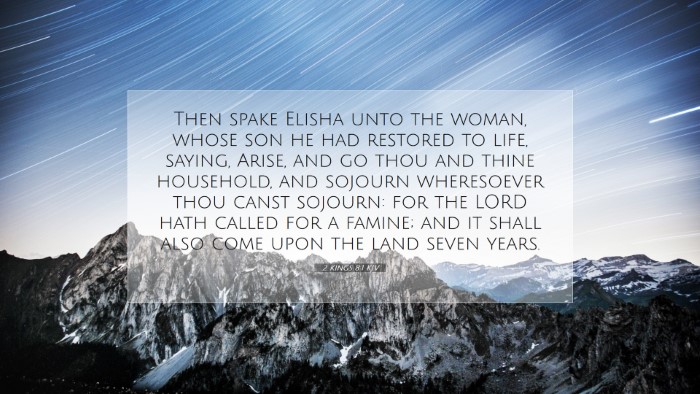Commentary on 2 Kings 8:1
2 Kings 8:1 states:
"Then spake Elisha unto the woman, whose son he had restored to life, saying, Arise, and go thou and thine household, and sojourn wheresoever thou canst sojourn: for the LORD hath called for a famine; and it shall also come upon the land seven years."
Introduction
This verse follows the narrative surrounding the Shunammite woman, who had experienced miraculous intervention from Prophet Elisha. The earthquake of God’s providence is clearly illustrated here as the prophet warns her of an impending famine, urging her and her household to seek refuge elsewhere. The implications of divine communication through the prophet lay crucial theological foundations regarding God's sovereignty and provision.
Historical Context
The backdrop of 2 Kings is a tumultuous period in Israel's history, marked by political instability, apostasy, and divine judgment through prophetic warnings and acts of deliverance. Understanding the historical significance of this verse is critical for interpreting the broader narrative.
- The reign of Jehoram: The verse occurs during King Jehoram's reign in Israel, a time often characterized by moral and spiritual decline.
- The role of Elisha: Elisha's prophetic ministry serves as a beacon of hope amid societal decay, reminding the people of God's continued involvement in human affairs.
- The significance of famine: Famine often symbolizes divine judgment in the Old Testament, serving as a prelude to spiritual awakening or repentance among the people.
Verse Analysis
Command to Arise
The imperative "Arise" indicates action and urgency. Elisha’s instruction compels the Shunammite woman to act in the face of divine foreknowledge.
- Faith in God's Warning: Her obedience reflects her faith in God's word relayed through Elisha. It demonstrates a model of trust in divine guidance.
- Devotion and Concern: The mother’s concern for her son and household underscores her protective nature—a theme prevalent in the Bible symbolizing care and leadership.
Sojourn Where You Can Sojourn
The phrase "sojourn wheresoever thou canst sojourn" presents the uncertainty facing the woman. It reflects a transient lifestyle often faced by those under dire circumstances.
- Reliance on God’s Provision: The command implies an endurance and reliance on God for sustenance while displaced.
- God's Sovereignty in Distress: It emphasizes that while they may wander, God's providence accompanies them, safeguarding their welfare.
The Famine Prediction
The prophesied famine is a critical aspect of the verse, indicating God's judgment and foreknowledge.
- Symbol of Judgment: Famine, often a sign of divine disfavor, reinforces the message that material conditions can reflect spiritual realities.
- Duration of Seven Years: The duration symbolically signifies a complete cycle, marking God's comprehensive providence and judgment.
- Preparation and Faithfulness: The prediction illustrates God's faithfulness in preparing His people—in this instance, the Shunammite woman—for trials ahead.
Theological Reflections
This passage holds significant implications for understanding the nature of God’s interactions with humanity.
- God's Sovereignty: The foretelling of famine emphasizes God’s overarching control over natural events and human lives.
- Listening to God’s Voice: The importance of seeking divine instruction in times of crisis is underscored, reminding us to be attuned to God's word.
- Faith under Duress: The Shunammite woman’s actions exemplify the essence of faith—acting on God’s word, especially when faced with uncertain futures.
Application for Today
For modern pastors, theologians, and scholars, this passage serves as a reminder of the critical nature of discernment in divine guidance:
- Encouragement to Obedience: Believers today are encouraged to respond promptly to God’s prompting, particularly in times of crisis.
- The Importance of Community: The command to the Shunammite woman also reflects the community’s role; she is not just preserving her life but that of her family.
- Trusting God’s Provision: In current societal uncertainties, faith practices embodying trust can be a source of stability and hope.
Conclusion
2 Kings 8:1 encapsulates key themes of faith, obedience, and divine sovereignty amid adversity. It exemplifies the hope found in God’s warnings and providential care. As contemporary readers and leaders, engaging with this text allows us to glean insights into living faithfully in the complexities of life. The realization that, like the Shunammite woman, we too are called to act in faith and trust in God’s omniscient guidance remains profoundly significant.


